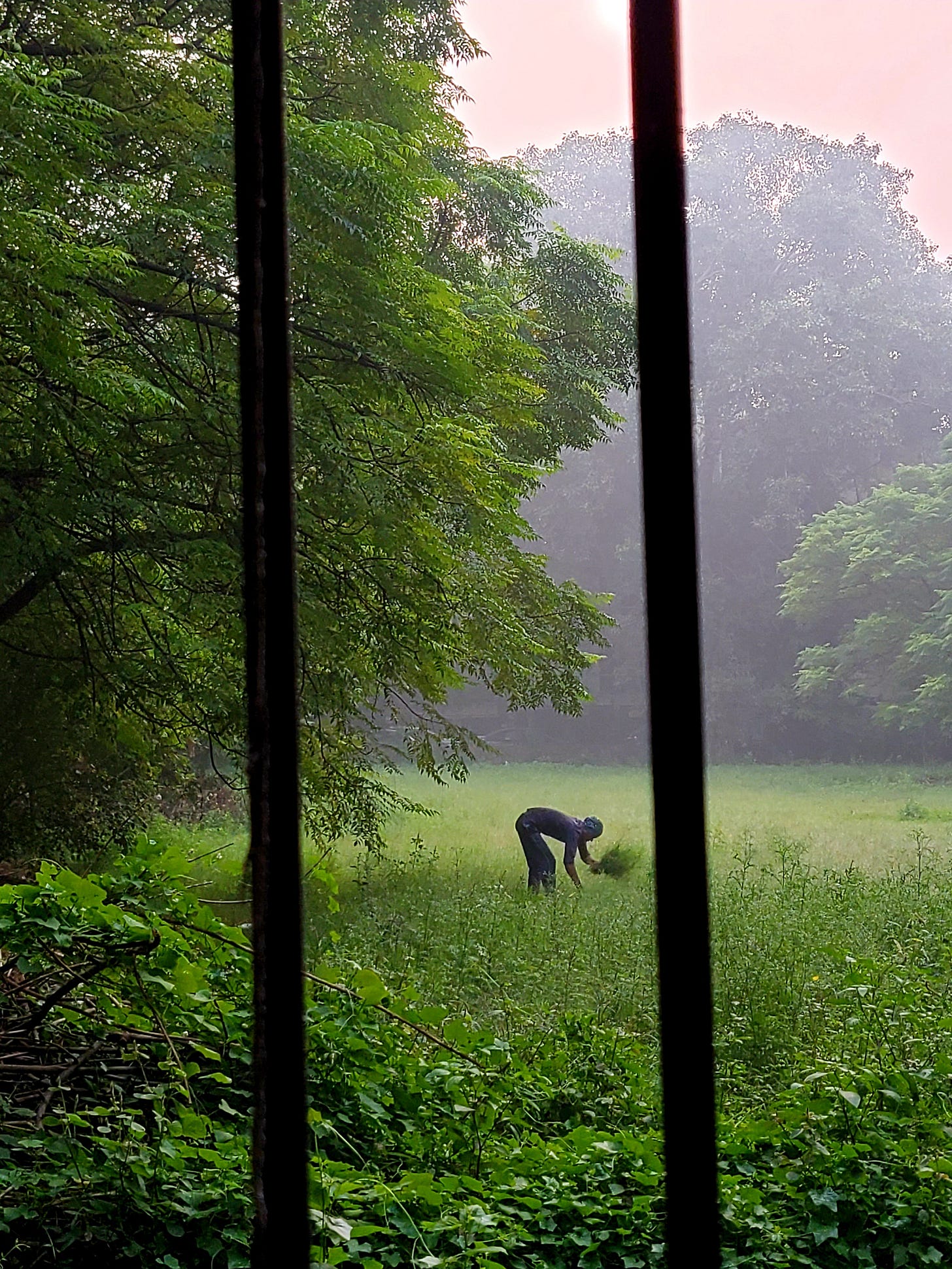Reporting from New Delhi, India.
6:45 am.
I’ve managed to get some sleep in the past couple of days because of a magical invention called the weighted blanket. Here’s where you can find one.
Now that I’m living with my mother and two beautiful fur babies, we don’t celebrate festivals very often, except Christmas; but that’s more of a Western fantasy of snow and carols that I always find comfort in. Diwali is community-building too, but with the increasingly religious Hindu iconography, I certainly don’t miss the long hours sitting in front of the havan kund: a fire pit of the entire family’s offerings, supposed to usher in good luck especially if the eldest daughter of the family - me - sits beside the priest. Most Diwalis I just remember coughing like a needle scratching a record, and my lower back in a spasm. There were also firecrackers, and I have certainly enjoyed my fair share: some ignited at the tail end of a toy rocket, some hurriedly lit in earthen pots, everyone covering their ears waiting for an explosion as chunks of clay fly upwards and scatter on the roads for next morning’s cleaners. This was many years ago.
I started my day today with Simba’s wet snout pressing against my dangling hand, and his sad eyes when he realised that I’m wearing my walking shoes but not taking him with me. Instead, this black beauty joins me each time I latch the front door to our house.
Her name is kaali, which translates to “black” in English: a classic Indian example of the matter of fact racism more often than not used pejoratively for people with darker skin - but no time to discuss that now. The margins will implode.
Long string lights are the little black dress of Diwali lights - classic, simple, and you really can’t go wrong. I wanted to do a before and after comparison of the morning of Diwali and the day after - the smog is already thickening around the buildings, so the lights that I’ve tried to capture only shine when the grip of smoke loosens around their throats.
For some people, festivals mean more money, which is why they keep working past lights out. The longer their hands are at work, the more profits they can make out of desperate shoppers angling for gifts and deals, taking advantage of the very little air left in their lungs to bargain ferociously.
Then there are those whose labour is at once mundane and extraordinary in its resilience to festivities.
Amidst this noise and light on the ground, the sky is unclaimed territory whose lights flicker on and off whether we want them to or not.
Lastly, for all my friends living in big cities, the industrial air choking their lungs, my Maa says that jaggery and chickpeas soaked in water work wonders.








